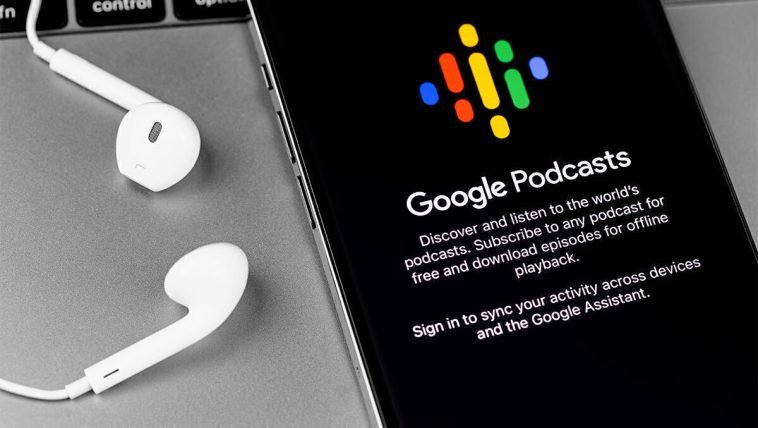Introduction.
Starting a podcast is exciting—planning episodes, recording, editing—until you realize one more thing: you have to figure out how to upload it everywhere listeners might want to tune in.
Each platform has different requirements, processes, and technical jargon, so the entire distribution journey can feel like a project in itself. But once it’s set up, you’ll be able to reach listeners all over the world, and it’s totally worth the effort!
In this guide, I’ll walk you through the process of uploading your podcast to the main platforms like Spotify, Apple Podcasts, Google Podcasts, and a few more.
I’ll cover everything from picking the right hosting platform, and understanding RSS feeds, to managing each platform’s submission requirements.
By the end, you’ll know exactly how to make your podcast available to as many people as possible.
How Do I Upload Your Podcast To All Platforms?
Step 1: Choose a Podcast Hosting Service.
Your podcast needs a home, and that’s where a podcast hosting service comes in. Hosting services store your audio files, create an RSS feed for distribution, and make it easy to share your podcast to multiple platforms. Some popular hosting options include:
- Buzzsprout: Known for user-friendly analytics and good distribution support.
- Anchor by Spotify: Free and straightforward, but it comes with limited analytics.
- Libsyn: Offers in-depth analytics and a lot of flexibility but may feel less intuitive for beginners.
Take a look at the features, storage limits, analytics, and pricing for each one. Many services have free plans or trial periods, which helps try them out before committing.
Step 2: Upload Your First Episode
Once you choose a host, it’s time to upload your first episode. Here’s what this typically involves:
- Episode Title: Make it clear and engaging.
- Description: Briefly explain the episode’s content, add keywords for searchability, and include any relevant links or timestamps.
- Artwork: This can be episode-specific or your general podcast cover art. Make sure it meets platform requirements (usually 1400 x 1400 pixels minimum).
- Audio Format: Most platforms prefer MP3 files. Set the bitrate to 96-128 kbps for best quality without massive file sizes.
Once uploaded, your hosting platform will generate an RSS feed, which is the crucial link you’ll use to distribute your podcast.
Step 3: Submit Your Podcast To Major Platforms
With your RSS feed ready, you’re all set to submit your podcast to the major platforms. Here’s a breakdown of the submission process for each one.
- Apple Podcasts:
- Go to Apple Podcasts Connect.
- Log in with your Apple ID, and submit your RSS feed.
- Apple reviews all podcasts, so approval can take 1-2 days.
- Spotify:
- Visit Spotify for Podcasters.
- Sign up or log in, paste your RSS feed, and verify ownership.
- Spotify generally processes submissions quickly, often within hours.
- Google Podcasts:
- Head to Google Podcasts Manager.
- Paste your RSS feed and verify it.
- Google Podcasts doesn’t require approval, so your podcast can be available within minutes.
- Stitcher:
- Go to Stitcher Partner Portal.
- Register your RSS feed and wait for approval, which usually takes 1-2 days.
- Amazon Music:
- Visit Amazon Music for Podcasters.
- Submit your RSS feed, and Amazon typically takes 1-2 days to review.
- TuneIn (used by Alexa devices):
- Go to TuneIn’s submission page.
- Email your podcast details and RSS feed, then wait for approval.
Some hosting services offer one-click distribution, automatically sending your feed to multiple platforms. If this is an option, it can save time but may limit control over specific platform settings.
Step 4: Keep Track of Your Submissions and Analytics
Once your podcast is live, make sure to track its performance. Most platforms offer basic analytics like downloads and listener demographics.
Additionally, your hosting platform likely provides a dashboard with more detailed insights, which can help with growth strategies and episode planning.
Pros and Cons of Uploading to Multiple Platforms
Pros:
- Increased Reach: More platforms mean more listeners have access to your content.
- Diverse Audience: Each platform has unique users, allowing for a wider listener base.
- More Analytics: With more platforms, you gain varied data points to help improve your content.
Cons:
- Time-Consuming Setup: Each platform has its submission requirements and process.
- Multiple Platforms to Manage: You’ll need to monitor all platforms for performance and troubleshoot any issues.
- Analytics Can Vary: Data across platforms can sometimes be inconsistent, making tracking slightly complex.
FAQs
Q: What is an RSS feed, and why is it important?
An RSS feed is a unique link that contains all the information about your podcast episodes. Platforms like Apple and Spotify use it to update their libraries whenever you publish a new episode.
Q: Do I need separate accounts for each podcast platform?
Yes, generally you’ll need to set up individual accounts on each platform you want to submit to. This allows you to manage your podcast and view platform-specific analytics.
Q: Can I change my podcast’s RSS feed later?
Yes, but it’s a bit of a process. You’ll need to update the feed on each platform, which may lead to temporary interruptions. Many hosts provide options for managing this transition if needed.
Q: How long does it take for my podcast to appear on each platform?
This varies by platform. Apple Podcasts can take up to a few days, while Google Podcasts and Spotify can make it available within hours.
Q: Is there a cost for uploading my podcast?
Most platforms do not charge for listing your podcast, but you’ll pay for hosting services, which can range from free to around $20/month, depending on features.
Conclusion
Uploading a podcast to all major platforms might seem like a big task, but the benefits are huge for reaching more listeners and growing your audience.
After setting up your podcast across platforms, you’ll be well-positioned to share your stories, interviews, or ideas with people everywhere.
Now, here’s the question: if you could only choose one platform to reach your ideal audience, which one would it be and why?





GIPHY App Key not set. Please check settings